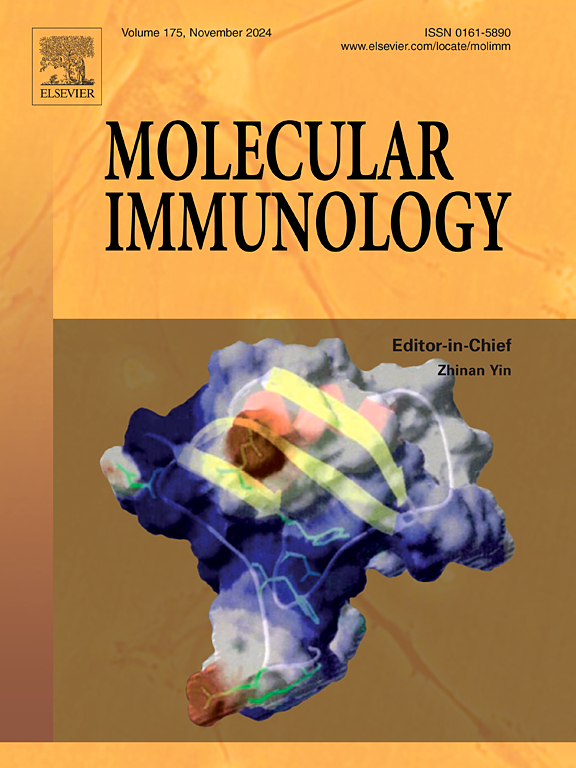Gastric cancer cells shuttle lactate to induce inflammatory CAF-like phenotype and function in bone marrow-derived mesenchymal stem cells
IF 3
3区 医学
Q2 BIOCHEMISTRY & MOLECULAR BIOLOGY
引用次数: 0
Abstract
Metabolic reprogramming, exemplified by the "Warburg effect," is a hallmark of human cancers, leading to lactate buildup in tumors. Bone marrow-derived mesenchymal stem cells (BM-MSCs), key contributors to cancer-associated fibroblasts (CAFs), integrate into gastric cancer stroma through interactions with cancer cells. However, the role of lactate in activating BM-MSCs in this context remains unclear. Herein, exogenous lactate induced a pro-tumorigenic phenotype in BM-MSCs, which was blocked by AZD3965. Gastric cancer cells released more lactate under hypoxia than normoxia. While normoxic gastric cancer cells could educate BM-MSCs, hypoxic cells were more effective. However, the effects of the supernatant from gastric cancer cells in both conditions were significantly reduced by AZD3965. Similarly, prevention of lactate production by oxamic acid sodium significantly reduced the effects observed. Lactate-activated BM-MSCs showed NF-κB signaling activation, increased IL-8 secretion, and no change in TGF-β signaling. These activated BM-MSCs promoted gastric cancer cell migration and invasion through IL-8 secretion and enhanced resistance to CD8 + T cell cytotoxicity by upregulating PD-L1. Collectively, gastric cancer cells induce an iCAF-like phenotype and function in BM-MSCs through a lactate shuttle mechanism, emphasizing the role of metabolic reprogramming in cellular communication that fosters a supportive tumor microenvironment. Targeting lactate-related pathways may provide new therapeutic strategies to hinder BM-MSCs' supportive roles in gastric cancer.
胃癌细胞在骨髓间充质干细胞中穿梭乳酸诱导炎症样caf表型和功能
代谢重编程,以“Warburg效应”为例,是人类癌症的一个标志,导致肿瘤中乳酸的积累。骨髓来源的间充质干细胞(BM-MSCs)是癌症相关成纤维细胞(CAFs)的主要贡献者,通过与癌细胞的相互作用整合到胃癌基质中。然而,在这种情况下,乳酸在激活BM-MSCs中的作用尚不清楚。在本研究中,外源性乳酸在BM-MSCs中诱导了促肿瘤表型,该表型被AZD3965阻断。胃癌细胞在缺氧条件下比正常缺氧条件下释放更多的乳酸。虽然常氧胃癌细胞可以培养BM-MSCs,但缺氧细胞更有效。然而,AZD3965显著降低了两种情况下胃癌细胞上清液的作用。同样,用肟酸钠预防乳酸生成也显著降低了观察到的效果。乳酸活化的BM-MSCs表现为NF-κB信号激活,IL-8分泌增加,TGF-β信号无变化。这些活化的BM-MSCs通过IL-8分泌促进胃癌细胞迁移和侵袭,并通过上调PD-L1增强对CD8的抵抗 + T细胞毒性。总的来说,胃癌细胞通过乳酸穿梭机制在BM-MSCs中诱导了icaf样表型和功能,强调了代谢重编程在细胞通讯中的作用,从而培养了一个支持性的肿瘤微环境。靶向乳酸相关通路可能提供新的治疗策略,以抑制脑基质间充质干细胞在胃癌中的支持作用。
本文章由计算机程序翻译,如有差异,请以英文原文为准。
求助全文
约1分钟内获得全文
求助全文
来源期刊

Molecular immunology
医学-免疫学
CiteScore
6.90
自引率
2.80%
发文量
324
审稿时长
50 days
期刊介绍:
Molecular Immunology publishes original articles, reviews and commentaries on all areas of immunology, with a particular focus on description of cellular, biochemical or genetic mechanisms underlying immunological phenomena. Studies on all model organisms, from invertebrates to humans, are suitable. Examples include, but are not restricted to:
Infection, autoimmunity, transplantation, immunodeficiencies, inflammation and tumor immunology
Mechanisms of induction, regulation and termination of innate and adaptive immunity
Intercellular communication, cooperation and regulation
Intracellular mechanisms of immunity (endocytosis, protein trafficking, pathogen recognition, antigen presentation, etc)
Mechanisms of action of the cells and molecules of the immune system
Structural analysis
Development of the immune system
Comparative immunology and evolution of the immune system
"Omics" studies and bioinformatics
Vaccines, biotechnology and therapeutic manipulation of the immune system (therapeutic antibodies, cytokines, cellular therapies, etc)
Technical developments.
 求助内容:
求助内容: 应助结果提醒方式:
应助结果提醒方式:


